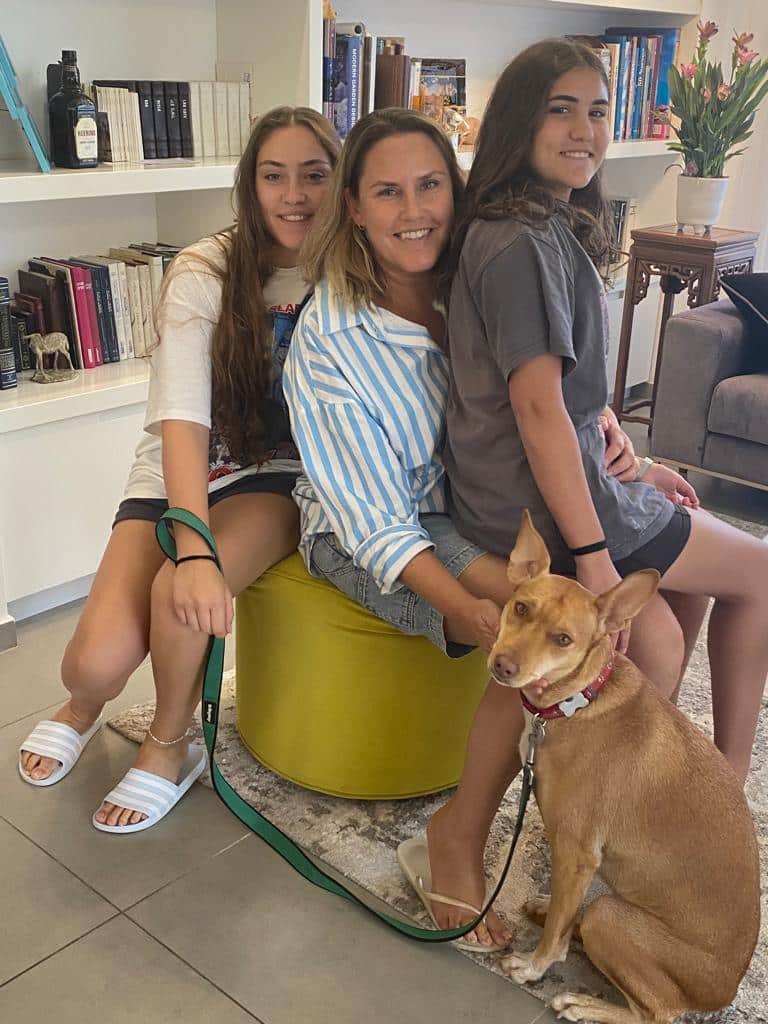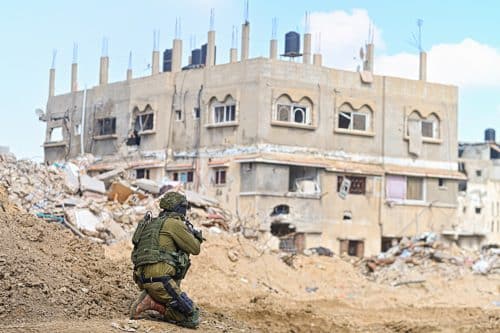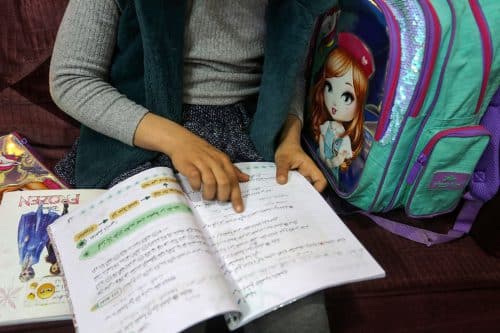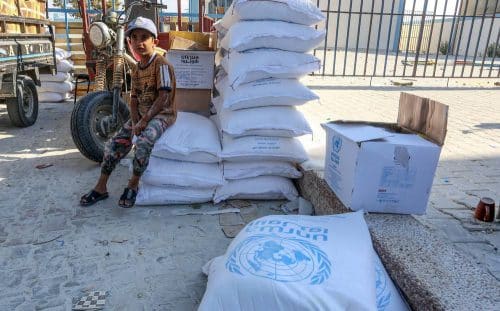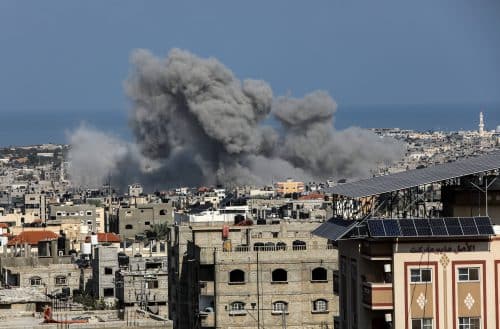Thus far, one of the videos with the most hits of Operation Iron Swords is one in which soldiers from the “Snapir” division identify and eradicate Hamas terrorists who attempted to enter Israel by sea, on the morning of Saturday, the 7th of October.
Among the fighters who took part in the battle and prevented the terrorists from entering Ashkelon from the sea was the daughter of Ronit Farkash, the Department Manager for Resource and Partnerships Recruitment for the IDSF. Ronit, herself a resident of the Gaza Envelope, discovered this only later. She woke up that morning, as terrorists reached the locked gate of Moshav Tekumah where she lives, and decided to continue on to Netivot.
“My daughter only called me at 2:00 p.m., to let me know that she was fine”, Ronit told us. “It was then that I learned what she had done at sea. I also have a son, an officer in the Nachal brigade, and my husband has been called up since right after Shabbat to serve in the Gaza Division and he’s also in the entry areas. The family has been completely recruited”.
FROM TACTICAL EQUIPMENT THROUGH SOCKS AND UNDERWEAR
Ronit, who only recently joined the IDSF, has been working round the clock since the war’s outbreak, raising funds from overseas and operating a system of donations and equipment which is flowing non-stop through the movement, for the soldiers. During the interview with her, for example, she is dealing with the distribution of mobile phone chargers for soldiers in the field.
As far back as the start of the war, the IDSF received dozens of calls from fighters, in both regular and reserve army service, reporting a lack of equipment. Ronit was placed in charge of the assignment and together with Simba and Erez Druker, the owners of the Access Investigations agency who from the second day of the war froze all investigations in the office and dedicated themselves fully to helping the movement’s operations benefitting the IDF soldiers, began to establish a system of aid to free-up equipment from customs and to distribute the constantly growing quantities. Currently, through the targeted system which was established to deal with the customs authorities, with the help of Simba and Erez, the movement is managing to keep a continual flow of equipment and supplies to the soldiers as it arrive nightly at Ben Gurion airport.
“During the initial stage, we managed to get tactical equipment to forces in the field”, Ronit explains. “At first, there was a supply of equipment in Israel and during those first days we managed to get together 500 helmets and vests, based on needs in the field.”
After a week of activity, the donors encountered an unanticipated problem. The army and the Ministry of Defence began to place obstacles in their way regarding the release of equipment and its nationalizing in army storage facilities. In keeping with the situation, the system changed its activities and switched to distribution of civilian equipment which could move faster through the bureaucracy; thermal clothing, underwear, socks, gloves, mobile chargers and so forth. At the same time, the army managed to equip all the regular army soldiers in the various units during the past week and a half.
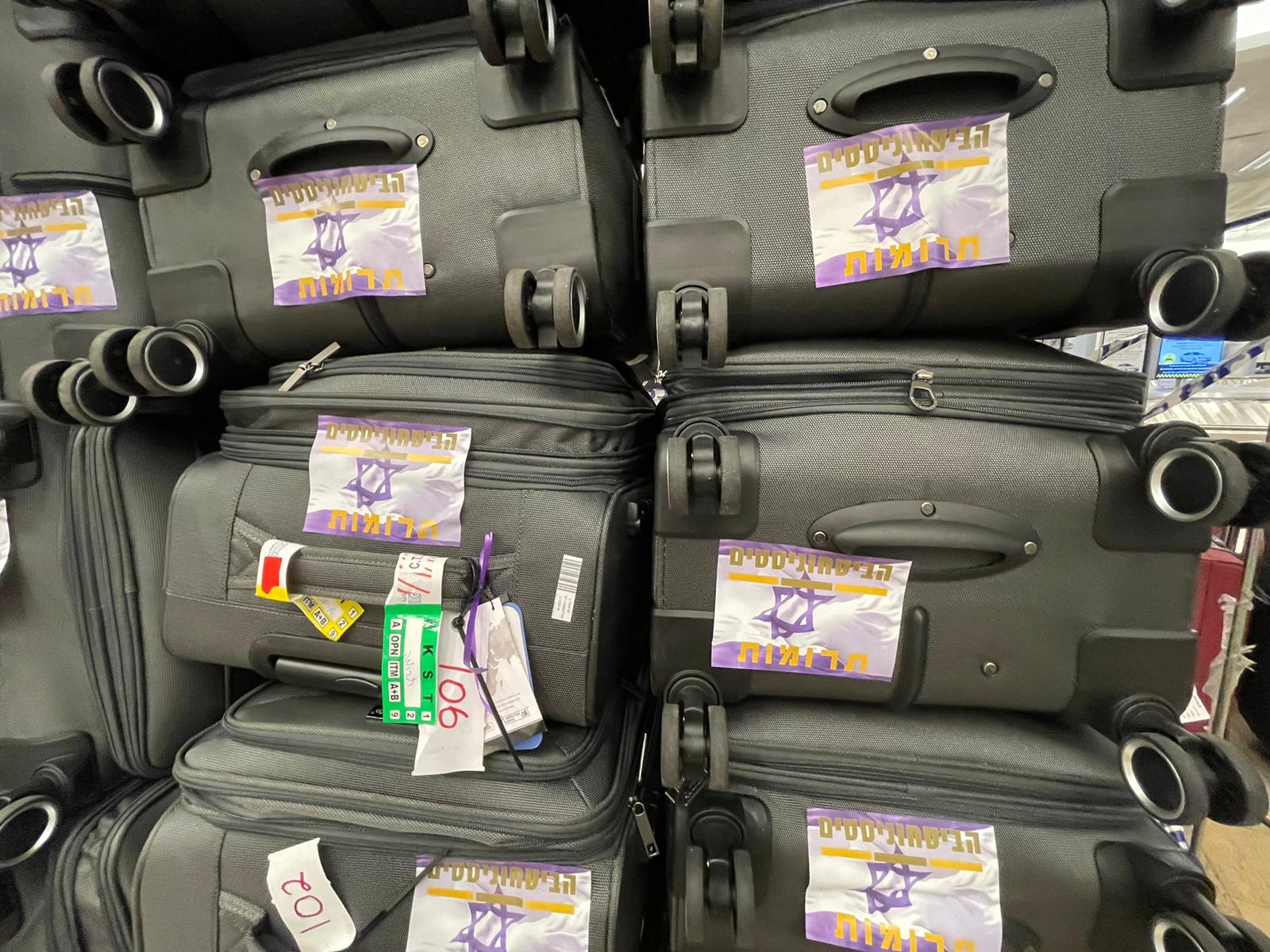
AID TO THE RAPID RESPONSE TEAM: THE FIRST LINE OF DEFENCE
Apart from gathering and distributing equipment based on the emerging needs of the army units in the field, Ronit is responsible for handling donations and purchasing equipment for the rapid response teams in the towns and settlements both in the Gaza Envelope and on the Lebanese border.
“I’m in touch with all the regional councils in the Gaza Envelope and with the City of Sderot, and we made a list of critical defence requirements for the rapid response teams who remained in the towns”. As we know, the members of those teams are the ones who first battled the terrorists on Saturday, but they are sorely lacking equipment. “On Saturday there was already a lack of equipment, but now the little there was, has been used up. At the moment we’re raising money for exactly this purpose. We are trying to raise funds for these civil forces, including for medical and tactical equipment.”
Another large project Ronit is handling at the same time is supplying another armoured vehicle for each regional council. “Currently there is one armoured van per regional council in the Gaza Envelope which is meant to travel among the various towns to carry equipment. All the rest of the vehicles are able to travel only when there is no firing, which slows down the settlements’ ability to support one another”, explains Ronit. “Furthermore, we’re working on supplying thermal drones for forces in the area which will be able to identify terrorists who are still be found here and there”.
The rapid response teams are a subject particularly close to Ronit’s heart. Her husband also volunteers with the team on the moshav where she lives in the Gaza Envelope, and he too went out on Saturday to defend his home, unarmed. “The rapid response teams are always at the bottom of the army’s list of priorities. Four years ago they gathered up all the weapons from response teams all over the country, supposedly because they were worried about theft by Bedouins. They left arms for two people in each settlement – the head of the team and his assistant. In the case of a terrorist incursion, it’s unclear how the remaining members of the response team are meant to defend the residents. Given that the State has placed the rapid response teams so far down on their list of priorities, we decided to take care of them and in recent days we’ve moved from being the homefront to the battlefront.”
MOVEMENT GONE MAD: THE IDSF ON THE GROUND
As we said, Ronit only joined the IDSF a few weeks ago, and is already involved in the movement’s activities at their peak.
“The movement’s gone mad”, she tells us with a smile. “Many of the senior members were called up and are fighting on the ground, some of them were responsible for killing dozens of terrorists on the first day of fighting. Amir Avivi, the CEO of the movement, went from television studio to television studio round the clock in order to handle hasbara and promote solutions which will bring about long-term quiet. The international hasbara department also works on internet sites and in studios in Europe and in the US , while the policy and research department are managing diplomatic and media ties in the Western countries, in order to give Israel enough time to act”.
In addition, in keeping with a request by the police, the IDSF are helping to recruit volunteers: “We’ve already passed 1,000 volunteers who contacted us”, Ronit tells us with satisfaction.
Other activities operated by the movement are related to the soldiers’ morale: “We received a request from the army asking us to give the soldiers copies of the book Amir Avivi recently published, ‘No Turning Back – How to Ensure Israel’s Security for Generations’, so we’ve donated thousands of copies to the army.”
“WHAT KEEPS THE SMILE ON MY FACE IS THE UNDERSTANDING THAT WE CAN RELY ON ONE ANOTHER”
In order to manage contact with donors from overseas, Ronit holds daily conversations with hundreds of movement members there. “Senior members of the movement send updates about what’s going on in Israel to donors and members, and we get them together with soldiers on the ground, so they can feel the power and the resilience”.
This activity is also what gives Ronit a sense of optimism. Faced with a sense of helplessness, the fears of the residents of the Gaza Envelope and the overwhelming grief, Ronit is amazed by the way the Israeli public has pulled together as well as by the support of Jews from all over the world. “Donors asked me, how can it be that in times like this we manage to smile. In the end, what keeps the smile on our faces is seeing that we really can rely on one another. It gives us strength and motivates us. I have one donor from overseas, a 70 year old, who wanted to come to Israel to help out, and complained that no one wanted to take responsibility for him”, she laughs. “People’s desire to come and help is truly heartwarming”.
